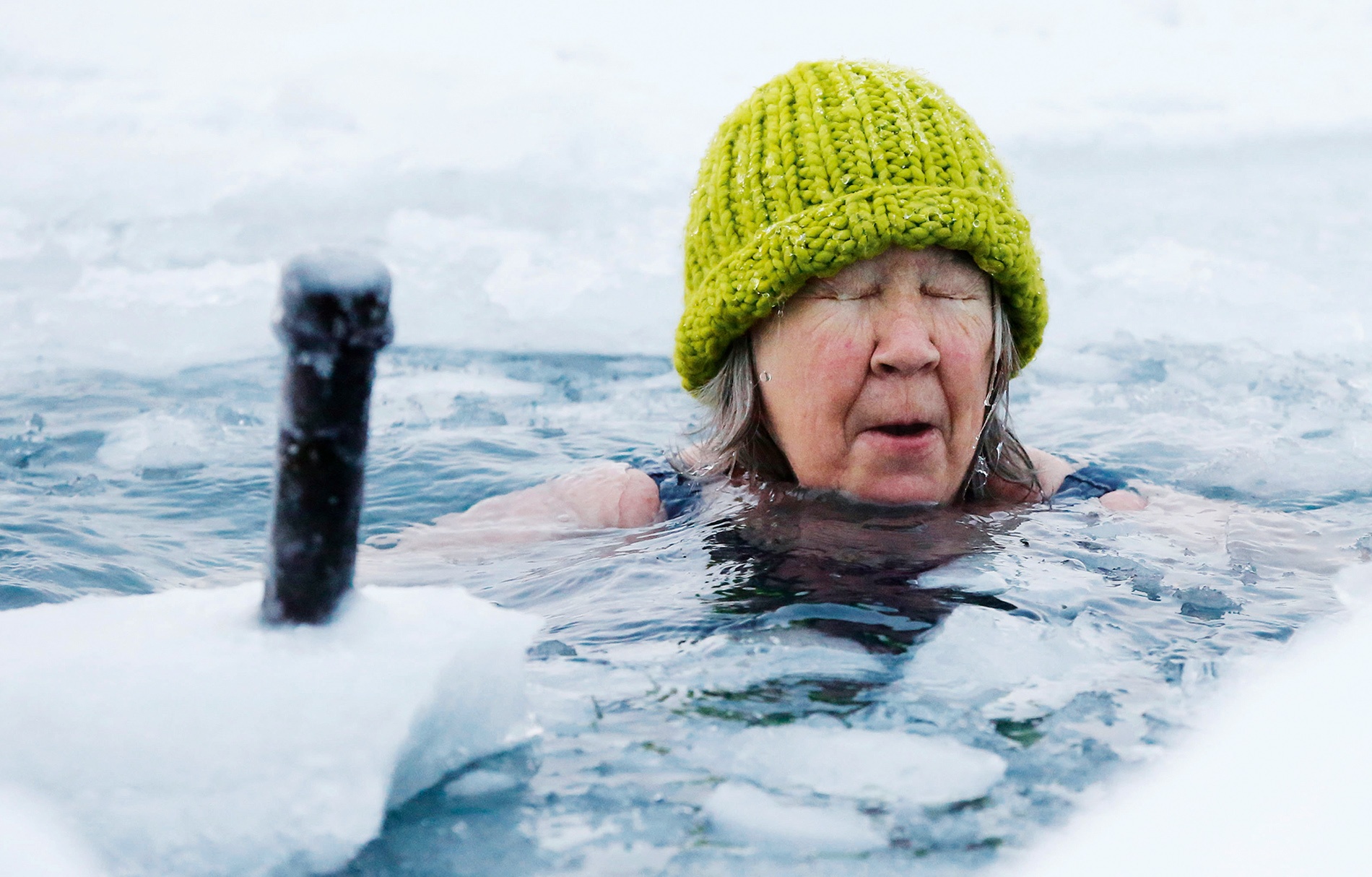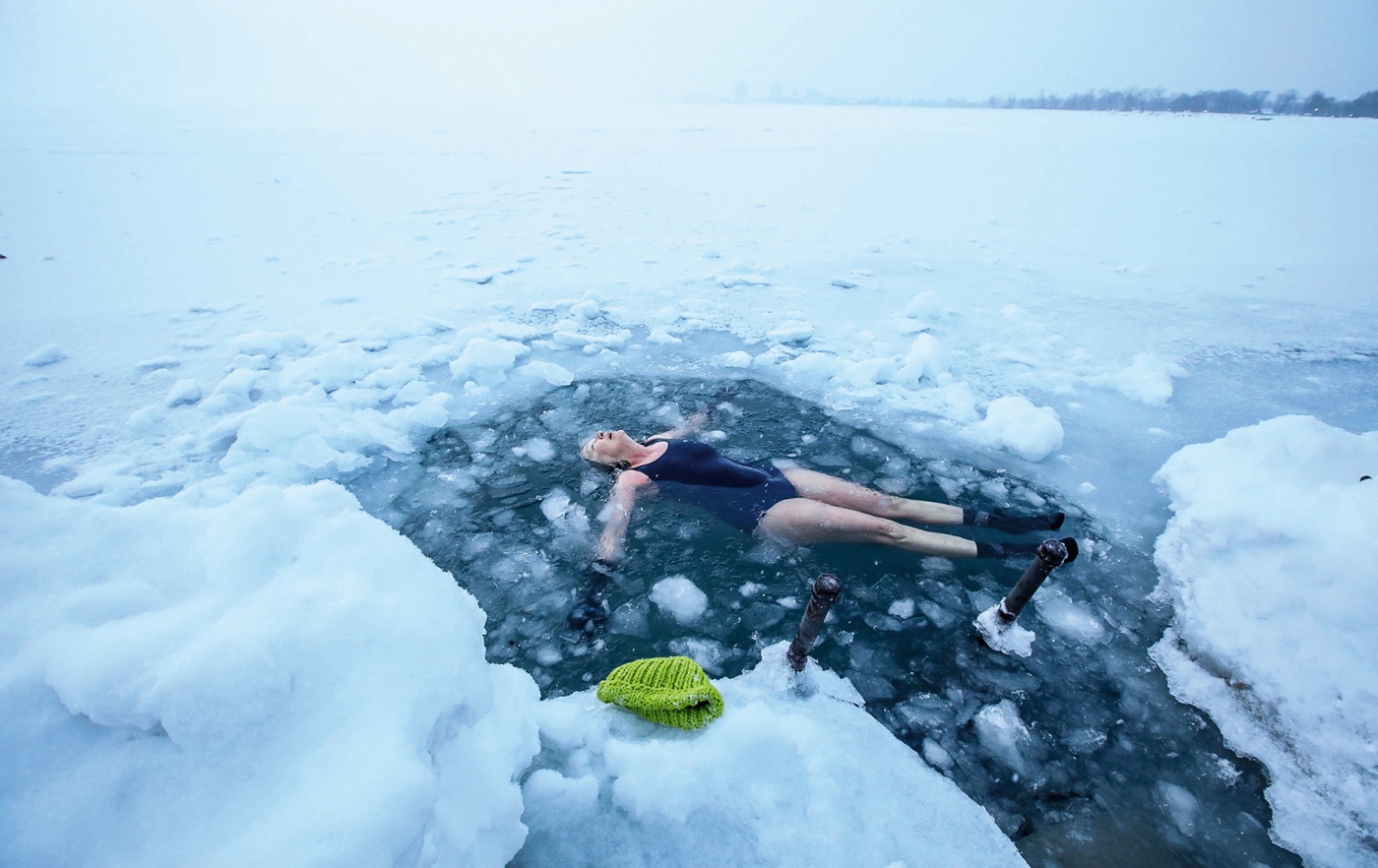
Self-Healing
The power and resilience of swimming in icy waters
“I was a cold water weenie,” declares Helen Wagner ’80, who joined the Brown University marching band, not the varsity swim team as the former high school competitive swimmer had planned. “The water in the Smith Swimming Center pool was just too cold for me.”
Cold-water weenie is an unexpected label for a woman who since the pandemic began in 2020 starts her day swimming in the cold open waters of Lake Michigan. That year, Wagner and two women met at Promontory Point, a man-made rock-rimmed peninsula in Hyde Park on Chicago’s South Side. In winter, they braved freezing temperatures, wind, and water. Some days they had to whack holes in the ice to immerse themselves.
The sunrise swimming ritual began as an antidote to the isolation of the Covid-19 shutdown. One of Wagner’s fellow swimmers had lost her husband to the coronavirus one month
into lockdown, the other was battling depression.
Wagner understood the power of open-water swimming for self-healing. After completing a harrowing regimen of breast cancer treatments in the spring of 2011, Wagner started swimming in a reservoir near her home in Vermont to feel whole again. “It was the first time since my diagnosis that my body didn’t feel broken,” she says.

Now in her fourth winter of swimming through icy waters wearing just a bathing suit and neoprene hat, mittens, and booties, Wagner credits open-water swimming with providing a feeling of personal accomplishment, resilience, and a way to feel wonderful every day. Not to mention, she finds it “wicked fun.” Her swimming odyssey is documented in an award-winning short film, Swimming Through (available on the New Yorker website).
The National Institutes of Health (NIH) back Wagner’s anecdotal evidence with scientific data on the mental health benefits of cold-water immersion. Cold water swimming activates the sympathetic nervous system and increases the concentration of hormones and neurotransmitters that help to regulate stress.
The NIH also cites studies that point to physical health benefits of cold-water swimming, including lowering blood pressure and improving the endocrine and immune systems. Yet the NIH also cites potential risks, especially for people with cardiovascular issues.
If swimming in an icy lake to relieve stress sounds too extreme, try a cold shower.




